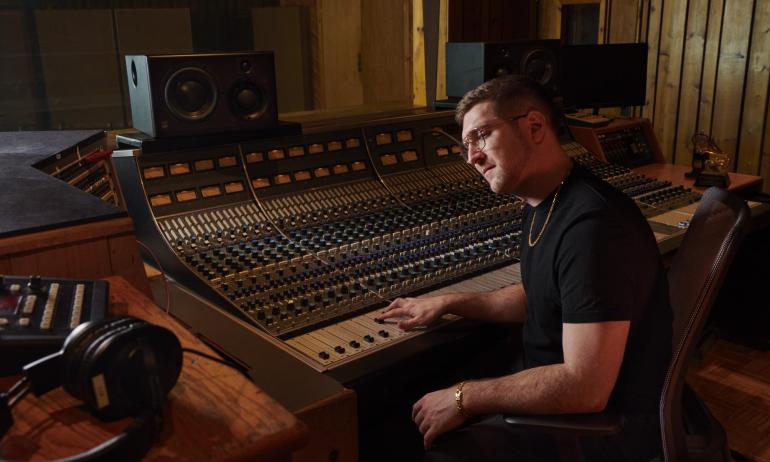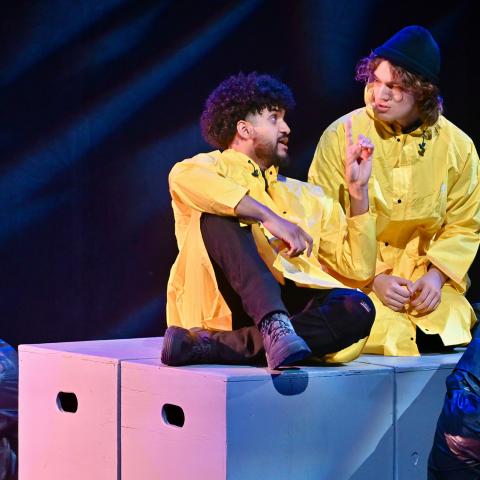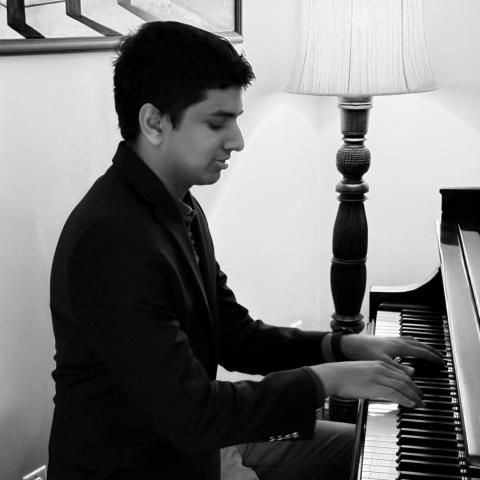The Queen of African Music
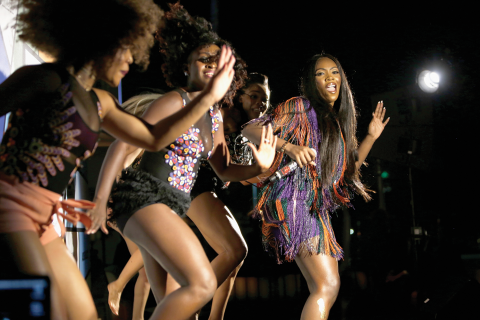
Tiwa Savage is bringing the sound of Afrobeats music out of the motherland to the world.
Savage became the first African artist signed to Jay Z’s Roc Nation entertainment company in 2016. A native of Nigeria, Savage resides in Lagos, the music hub of her country, and in recent years she has become a major celebrity in Africa. Her songs and videos, acting in the MTV series Shuga, and appearances in ad campaigns for major brands such as Pepsi, have brought her name and face recognition in the motherland and beyond. Observing her star steadily rise, the Roc Nation team pegged Savage as an artist with the potential to introduce music and other aspects of African culture to audiences in America and globally.
Born in Lagos, Nigeria, Savage moved to London with her family when she was 11 years old. There, she discovered her voice. At 16, she launched her career as a background singer and ultimately found herself singing with such artists as George Michael, Kelly Clarkson, and Blu Cantrell. Before diving headlong into a music career, she earned an accounting degree from the University of Kent at the urging of her parents. Then she returned to music. While out on tour backing Mary J. Blige, she met Keith Harris ’98, who was playing drums with the Black Eyed Peas on the same tour. Harris counseled Savage to study music if she was serious about music as a career.
She heeded his advice and came to Berklee where earned her diploma in professional music. From there, she moved to New York, where she began collaborating in songwriting sessions. A publishing deal with Sony ATV followed. On the move again, Savage relocated to Los Angeles. There she worked with such artists as Frank Ocean, Kenny “Babyface” Edmonds, and others.
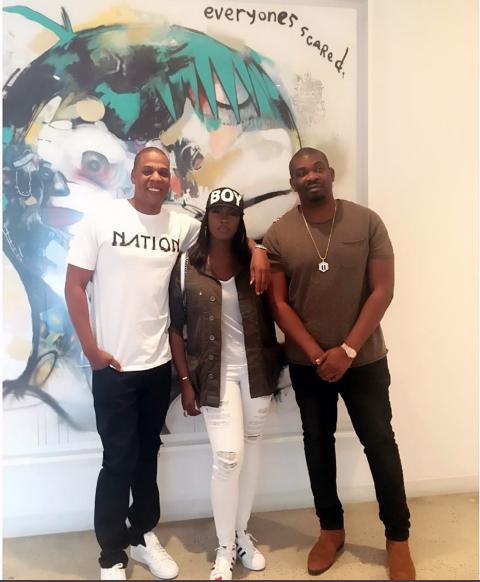
From the left: Jay Z, Tiwa Savage, and Don Jazzy after Savage signed a management contract with Roc Nation in 2016.
She has an affable charisma and star quality that can’t be missed whether she’s on the Jumbotron at a concert or in the room with you. At the Times Square offices of Roc Nation the day before her appearance in Brooklyn, rain coursed down the windows as Savage described the winding path her career has taken. Just a few days prior, she made the 16-hour flight from Lagos to New York to do a handful of concerts and to play the Roc Nation team music she has co-written and recorded for her upcoming EP.
During our interview, Savage was enthusiastic as she mentioned elements of Afrobeats music showing up the songs “In Common” by Alicia Keys, “Run Up” by Nicki Manaj and Major Lazer, and “Come Closer” by Drake and Wizkid. “A lot of artists are looking for the next sound,” she says. Tiwa Savage has already found it.
Was it a big adjustment to leave Lagos and move to London at 11?
It was huge, especially since I didn’t know I was going to live there. My mum originally said we were going to London on vacation, then she decided we’d live there. I had a strong Nigerian accent and didn’t have the trendy clothes the other kids had. I was bullied in secondary school, but those people became my friends once I started singing and doing local competitions.
I understand that you played trombone before you began singing in high school.
I had a crush on a guy who hung out with students who sang and played music at school. I wanted to take a music class to try to get his attention, and the teacher gave me the trombone to play. Eventually, I told him that I wanted to sing instead. He asked me to sing something and I did a song from The Sound of Music. He was pleasantly surprised and told me that I had a beautiful, sweet tone. That’s how it all began for me. Then I met some musicians who introduced me to gospel music—the Clark Sisters and Kim Burrell. I started getting into jazz as well. I just fell in love with music at that point.
At 16, you were working as a backup singer with the Laurence Johnson Tuff Session Singers. Did that make you yearn for a chance to become a headliner?
As I started really getting into music, I always saw myself as an artist. But my first gig was as a backup singer and I loved that. It was an opportunity to be in the shadows and learn what the industry was about without the pressure of being the artist.
What made you decide to put music on hold and go to the University of Kent?
African parents are very strict about further education, so mine didn’t buy the idea of me quitting secondary school and going into music. My dad told me to pick between being a doctor, lawyer, accountant, or engineer. So I went to the university and studied accounting. After I graduated, I gave my dad my certificate and told him that I was going off to sing. But the reality of being a session musician who might get three gigs a week and then nothing, hit me. It wasn’t as glamorous as I thought it would be. I ended up taking a day job as a trainee accountant. In the evenings, I would go to studio sessions and jam, and then wake up and go to work the next morning. I started getting calls to sing backup for George Michael and others and then a call to go on tour with Mary J. Blige. The tour would take me away for two or three months, so I had to make a decision to leave my job and do music full time. I decided to do the tour.
Can you fill me in on Keith Harris encouraging you to come to Berklee?
The Black Eyed Peas were on that tour and Keith was playing drums for them. I looked at the American musicians as if they had an aura about them. He was so sweet and gave me some time and talked to me about music. He said that if I was serious about it, I should study at Berklee. I told him that you don’t hear huge pop stars saying that they had a music degree. They got started at church or were discovered at a petrol station or something. I thought I just needed to be in the right place at the right time. But he told me, “No, you should study music.” My parents loved the idea of me getting another degree and told me to go for it. When I saw how expensive Berklee would be, I thought there was no way I could afford it. Keith told me I should apply for a scholarship.
Berklee was holding auditions in Ireland, so I flew there. I had tried to prepare, but when I got in the audition, I was asked to read a piece of music. I started crying and said I couldn’t read music and that was why I wanted to come to Berklee. So [the person conducting the audition] asked me to just sing something. In a few weeks, I heard that I’d gotten a partial scholarship, maybe 70 percent.
As a professional music major you could pick your courses. What did you choose to study?
I took courses in music business, songwriting, and vocal performance. I remember really liking my vocal teachers Donna McElroy and Robin McKelle. Everyone who comes to Berklee was the superstar in their town, the best in their church or school ensemble. You are among the best of the best and that’s scary initially. You walk by a rehearsal room and hear someone taking a solo and ask yourself, “What am I doing here?” But it sharpens and prepares you. I loved everything I learned there, it has given me so much confidence in reading contracts and knowing what to tell a producer in the studio about the sound I want. That gets you respect when you’re among other musicians.
Berklee was also important because of the relationships I made there. Some of my closest friends today are people I met at Berklee. Candace Coles [’07], Nadine Ford [’07], Darien Dorsey [’07], and Kamaria Ousley [’05] all came to my wedding in Dubai. Beyond music and Berklee, we are all still good friends.
What was next after you finished your studies?
After I graduated, I left a community of musicians and went to New York on the Greyhound bus. I stayed with friends for a couple of days before getting a little apartment in Bed-Stuy [the Bedford-Stuyvesant neighborhood] in Brooklyn.
My student visa was going to expire in a year and I was wondering what I was going to do. Then I started writing songs with other musicians. One of the songs caught the attention of [American Idol winner] Fantasia [Barrino]. A guy from Sony ATV named Rich Christina heard it and offered me a publishing deal just as my visa was about to expire.
Fantasia recorded the song, “This Time” but didn’t release it. When I got my first check from Sony I moved to L.A. and started writing more. I met with producer Oak [Warren “Oak” Felder] and his partner Pop [Andrew “Pop” Wansel]. We wrote a song called “Collard Greens and Cornbread” that made it onto Fantasia’s Back to Me album. That was one of the songs I needed to write toward fulfilling my contract with Sony.
How did you come to sing background vocals on what would be Whitney Houston’s last studio album, I Look to You?
That was incredible. I don’t remember where I was, but I got a call from someone saying one of the singers for that session didn’t show up, and they asked if I could come through. I went there and sang on it. I need to find that CD with the credits on it and frame it.
How did you end up deciding to move back to Nigeria?
Everyone confuses Tee Billz from Interscope Records with the Tee Billz who was my husband, they are two different people with the same name and nickname. So it was the Tee Billz that I met in Los Angeles who became my husband and was into Afrobeats who said I should go back to Nigeria.
At that time I was thinking of going into r&b and pop, but it felt a little foreign to me. That kind of music was something I could do but it wasn’t what was in my heart. I started listening to Afrobeats and knew that it was really starting to grow back home. I decided to do a blend of Afrobeats, r&b, and pop. A friend knew the Tee Billz who worked Interscope told me to send my music to him. I sent it, but didn’t hear back from him. I went to a concert and someone pointed him out to me. I went up to him and said, “I sent you my music a month ago, and you didn’t respond. You’re about to miss out on the next big thing to come out of Africa!” He told me to calm down and that he would check out my music. He called me back and said he felt I had something special.
I told my manager at the time, a man named Touch who was also managing Frank Ocean and others, that I was going to move back to Africa. He told me I was crazy to leave with a publishing deal and a lot of sessions set up. But that’s what I wanted to do, and I left. I still have the publishing deal.
So you had very little trepidation about the move?
It doesn’t phase me to move. I moved to the U.K. and to Boston without knowing anyone there. Later I went to New York and Los Angeles. I knew that going back to Nigeria meant I’d be starting over again. A lot of Nigerians looked at me as someone who had lived outside of the country for so long and my accent and the way I dress were different. I am a little more liberal than many of the people there. So I was starting over again, but it was fun.
Did you hope to do something to remedy the fact that there were few female artists in the Nigerian music scene?
I fell in love with Afrobeats music because it was a blend of African music with hip-hop that was perfect for me as someone who had lived in Nigeria, the U.K., and the U.S. I wanted to be part of the revolution that was happening. There weren’t too many female artists in the music and so there weren’t too many songs from a female point of view of.
How long was it before you got a toehold?
I started a label with Tee Billz, my husband at the time, and we began hustling. My first single “Kele Kele Love” did extremely well. People in the industry started to know who I was. I met Don Jazzy, who is a legend in African music, and told him I needed a label to help us reach our potential. He recorded a song with me called “Without My Heart” that was produced by Oak from L.A. Don Jazzy eventually signed me to his label Mavin.
We had been dropping songs and videos, but as soon as I started working with Don Jazzy, it was a whole different ballgame. I was attached to a huge brand. Some things came a lot easier after that, but a lot more was expected as well. They expected me to not come out with any music that was less than what Don Jazzy had built through his brand.
“Kee Kele Love” came out in 2011. Why did you take so long to release the your debut album Once upon a Time?
Nigeria is a singles-based market and it took me a while to release the album because the singles were doing so well. Also, I was performing so much that it was hard to get into the studio and record more.
Were you touring mainly in Nigeria?
I worked in Nigeria and within Africa. But I also did some concerts in the U.K., Australia, Europe, and the U.S., but it was mainly in Africa. Afrobeats music is pretty universal in Africa. Social media and technology have made connecting a lot easier. If a song was released at home, it wouldn’t matter if I was in Australia.
You regrouped in Los Angeles shortly after launching your career in Nigeria. Was that because you’d gotten some pushback?
When I first moved back to Nigeria, people were wondering, “Who is this girl who dresses like this?” Some of my videos were banned because of the skimpy outfits I was wearing. Some promoters didn’t put me in their shows either because I was female or because they thought other women might feel threatened by someone who was so confident about her sexuality and music. It was difficult, so I went back to L.A. But I became depressed and decided to go back and fight rather than give up.
When did Bee-High Biggs, Jay Z’s cousin, enter the picture?
I learned that [Bee-High] had been coming to Africa a bit to watch the music industry. He said he was monitoring a few artists quietly and I was one of them. He felt I was the right person to be the first African artist to sign with Roc Nation and that I would fit into the family.
I wasn’t looking at the international market because the African market is so huge and we hadn’t conquered every part of it. When he approached me I felt it was good. I wasn’t going to them trying to force my way through the door. They opened it for me because they liked what I was doing. I didn’t have to convince them and I was so excited.
I went to New York with Don Jazzy to meet the people at Roc Nation about a management deal. I walked into a room and Jay Z was sitting there. He’s very cool and really believes in African culture—not just music, but fashion and movies too. He said, “This is the future, Africa is coming on strong.” He said he didn’t want to change me, he wanted to sell what I already have. That sold me. I go on instinct and I liked this. They have treated me like family and everyone here works very hard.
Will Roc Nation expand your brand with fashion, perfume, or other lines?
We have meetings about that stuff all the time. A lot of companies are interested because Africa is a huge market with millions of consumers. But we are focusing on music the most. We are planning the release of my first singles stateside and are trying to find a balance. The EP will be released both in Africa and the U.S. I came to New York to play it for people so they can think about it crossing over. It will be Afrobeats, but something that non-Africans can also enjoy.
Yesterday, we were in Times Square, and a car went by with non-Africans in it and they were listening to Afrobeats. That brought joy to my heart. I feel that in 10 years this music will be like reggae music that’s everywhere now. I feel so blessed to be one of the people holding a torch for it.
Were you involved in the songwriting for the EP?
Yes, I love writing, vibing, and being in the studio. The more successful you get the less time you get in the studio. There are so many other things you have to do. You have to attend to the business side with meetings, rehearsals, press rounds, and traveling.
You have a two-year-old son now, how has that affected your view of things?
Everything seems to make more sense now. The hustle, the hard work, the late nights, the traveling, I am doing it for someone. I don’t seem to get as tired anymore. I need to hustle for my son and the energy just comes from somewhere. I want to be at home with him as much as I can.
As I watch him learning to speak and walk, I think about my own challenges. But if he can learn to walk, I feel that I should be able to do anything I put my mind to. You need to go for it in life. I tell people all the time—I don’t care if you’re 20, 50, or 70—it’s not too late to start something. I’ve started over so many times.
If you could look into a crystal ball, what would you hope to see for your career in the future?
To be honest, I wouldn’t want to see it. That would spoil it for me. The adventure is the unknown. I didn’t know how all these parts of my life would piece together: going to London, going to Berklee, going back to Nigeria, getting signed with Roc Nation. If I had known all that, I might have taken things for granted. If I already knew Jay Z was going to sign me, I might have gotten lazy. I might go crazy if I knew what was coming. If I was to see that I was going to have six kids, I might say break the crystal ball!
Can you share some thoughts on your philosophy about music?
Music is something more than can be explained in words. It must be a spiritual, supernatural thing, something higher than what the eye can see. When I play or listen to certain music, it makes me feel better than a bowl of ice cream or a hug from someone can make me feel. Music can make me cry, laugh, or want to dance. Sometimes I hear music in a language that I can’t understand, but I can feel it. That’s why I think music has to be a spiritual thing.
Musicians are in such a special space because we can touch a stadium full of people in a way that a politician or a religious leader can’t. People listen to and absorb your music. It’s so powerful, and musicians create it.

